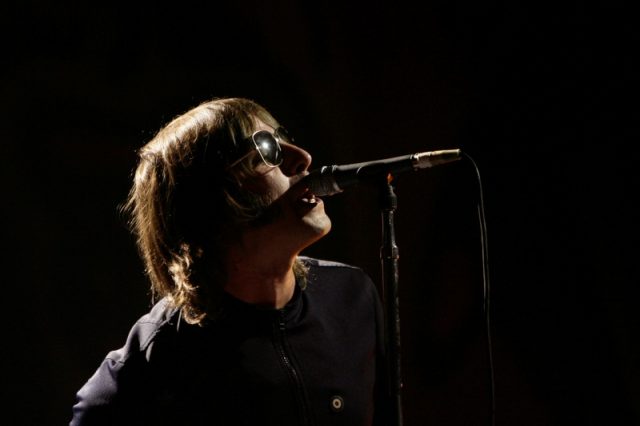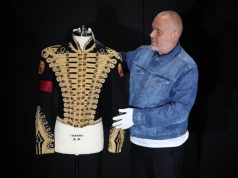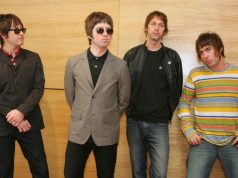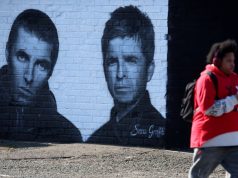
The internet has been buzzing with rumors of a possible Oasis reunion, with the release of a cryptic post on the band’s X account that features only the date of of August 27 2024 at 8am, in the band’s iconic logo font.
It was announced today the band will be reuniting for performances throughout the United Kingdom and Ireland in 2025.
Oasis were one of the biggest English rock bands in the 1990s and into the 2000s, essential to the Britpop movement, alongside bands such as Blur, Pulp, Supergrass and Suede. England’s answer to the grunge scene coming out of America at the time, Britpop was a brighter take on the rock genre, with catchy tunes and lyrics that often critiqued British culture.
Oasis were known for hit singles, with 1995’s Wonderwall perhaps their most enduring. The band has sold more than 70 million records, had 22 top 10 hits in the United Kingdom, and were one of the only Britpop bands to crack the United States.
But alongside their music, they were just as well known for drama between the two brothers, lead singer Liam Gallagher and lead guitarist Noel Gallagher.
The band haven’t played together since 2009. Like many moments in the band’s history, their last performance – or lack of one – was particularly dramatic.
The band was scheduled to play at V Festival, in the English city of Chelmsford, which was cancelled due to Liam’s bout of laryngitis.
Later, Noel claimed Liam was actually just hungover, prompting a defamation lawsuit between the brothers that was eventually dropped.
Their final show was to be at the 2009 Rock en Seine festival in Paris. But before the band played, they cancelled the performance.
Noel then made the infamous post on the band’s website that confirmed the breakup of the group:
It’s with some sadness and great relief to tell you that I quit Oasis tonight. People will write and say what they like but I simply could not go on working with Liam a day longer.
The two brothers then pursued other projects – Liam’s band Beady Eye, and Noel’s High-Flying Birds – and there has been a long-running, very public animosity between the pair, who have repeatedly said the band was never getting back together.
But fans still held out hope the brothers would find a way to reconcile and reform Oasis. Now, 15 years after they broke up, fans will get the chance to see them perform together again.
If you’ve only heard Wonderwall and are curious what the fuss is all about, here are a few Oasis singles (and B-sides) from their discography that Definitely Maybe might make you a fan, in no particular order.
Supersonic
Supersonic, Oasis’ first single, peaked at 33 on the UK singles chart. Technically only supposed to be a demo and apparently written by Noel in around half an hour, Supersonic shows the band’s ability to rock from the first buzzy guitar slide.
Roll With It
Roll With It was an important song not just for the band, but for Britpop.
Blur and Oasis released singles on the same day in 1995. Dubbed “the battle of Britpop” by the press, Oasis lost the number-one spot to Blur’s Country House. But Roll With It is still a really catchy song that combines glam with the melodic and harmonic influence of the Beatles.
Don’t Look Back in Anger
A UK number-one single, Don’t Look Back in Anger is one of Oasis’ most beautiful songs. They wear their love of the Beatles on their sleeve here with the opening chords sounding like John Lennon’s Imagine and the video clip with their mop tops and coloured glasses.
It’s not just a pastiche. Oasis put their own spin on classic 1960s pop, with chiming guitars, a winding chord progression, a classic, melodic guitar solo, and some surprisingly charming lyrics.
Whatever
Whatever was a stopgap single to tide the band over between albums. It is an overlooked gem, and one of their very best Beatles-esque tunes, with a gorgeous string quartet and a lyric insisting we should all be free to be ourselves.
The Masterplan
A B-side to Wonderwall – a tough act to follow! – The Masterplan really showed what the band was capable of, both instrumentally and harmonically.
The use of dynamics works so well in this song. It starts out very small, and becomes a swell of textures with big horns, lush strings, keyboards, guitars and more.
Stop Crying Your Heart Out
Stop Crying your Heart Out is a surprisingly sweet ballad about resilience and hope for the future.
Oasis lyrics could be abstract, or at other times incredibly simple, succinct and clear. This is an example of the latter. The grain of Liam’s voice and the grandeur of the lush arrangement makes for a beautiful track.
Half the World Away
Half the World Away was a B-side to Whatever, and is in contrast with the lush arrangement of strings and keys on the A-side. Sung by Noel, the song is quiet, acoustic and surprisingly poignant.
Lyla
Lyla is a later-era single. It combines the pop catchiness of a love song with psychedelic touches that really work.
Perhaps the cleverest moment is the changing of time signature during the chorus – it might make it hard to dance in time, but it really works as a fun musical moment that doesn’t happen often in Oasis songs.
Who Feels Love
Who Feels Love is Oasis at their dreamy and psychedelic best – a groovy half-time beat, lots of backwards swirling guitars, and a drone that really makes you want to sway. A modern take on 1960s rock.
Live Forever
The early single Live Forever has become one of Oasis’ most iconic songs.
Written in contrast to the grunge and alternative movements in the US at the time, the song acknowledges the bad times (“Did you ever feel the pain, in the morning rain, as it soaks you to the bone?”), but also has a sense of hope: “We see things they’ll never see – you and I are gonna live forever”.![]()
Jadey O’Regan, Lecturer in Contemporary Music, Sydney Conservatorium of Music. Co-author of “Hooks in Popular Music” (2022), University of Sydney. This article is republished from The Conversation under a Creative Commons license. Read the original article.







